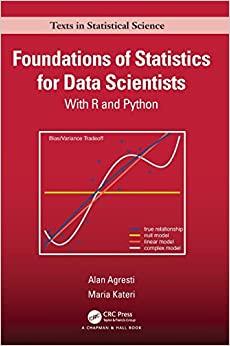Answered step by step
Verified Expert Solution
Question
1 Approved Answer
Greg was discussing his analysis with a friend, who mentioned he should calculate the future value of each of the scenarios since what matters is

- Greg was discussing his analysis with a friend, who mentioned he should calculate the future value of each of the scenarios since what matters is the amount of money when he retires. How would you evaluate this statement?
Step by Step Solution
There are 3 Steps involved in it
Step: 1

Get Instant Access to Expert-Tailored Solutions
See step-by-step solutions with expert insights and AI powered tools for academic success
Step: 2

Step: 3

Ace Your Homework with AI
Get the answers you need in no time with our AI-driven, step-by-step assistance
Get Started


